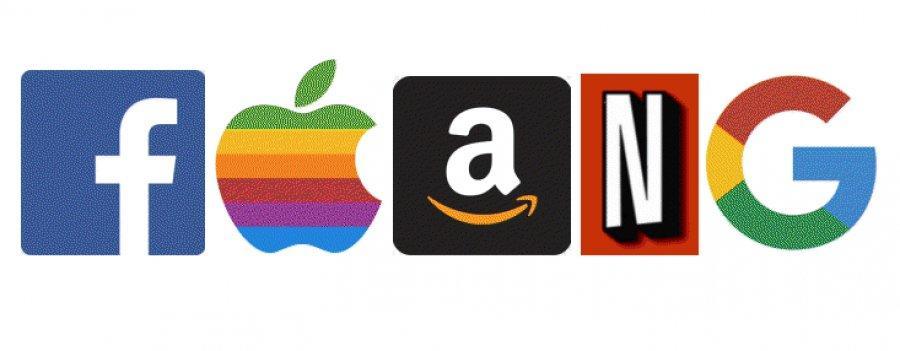Key Takeaways:
1 – Silicon Valley and Washington, DC, are vying for which capitol – the tech capitol or the political capitol — sets the public policy agenda.
2 – Americans are not so much worried about privacy as they are about Silicon Valley’s threat to their free will. The SV-DC balance of power
The SV-DC balance of power
I recently attended the Bloomberg Next Summit in Washington, DC, and during a panel discussion on the divide between Silicon Valley and Capitol Hill, Fred Humphries, Microsoft’s Corporate VP for US Government Affairs, made the statement that the technology industry has lost trust on Capitol Hill. The panel, which also included Niki Christoff, Salesforce’s SVP for Strategy and Government Relations, and Michael Beckerman, President and CEO of the Internet Association, then went on to discuss the prospects of a U.S. privacy law. Christoff boldly predicted that the next Congress will pass a national privacy law, and Beckerman agreed. Beckerman added that it is not going to be another GCPR, but will be U.S.-specific. Humphries offered a dissent, noting that there are many different business models in the technology industry, and these different sectors of the industry would each seek provisions that would impede other sectors, making it difficult to have a privacy regime that would apply across all of them.
Frankly, this panel’s immediate deflection to privacy as the issue that must be addressed to improve trust in the technology industry illustrates that Big Tech just doesn’t get it. What’s dividing Big Tech and Capitol Hill is power – it’s a fight over who is going to set the direction of public policy for the country. It’s not a fight that is peculiar to the U.S., but with the global capital of Big Tech being Silicon Valley, the balance of power between Big Tech and Big Gov in the U.S. has a huge impact on that balance in other countries, particularly in other democracies.
Free will, not just privacy is at stake
Certainly, Americans are concerned over their privacy. According to Pew, 91% believe that people have lost control of personal information and how it is used, and 49% are not confident of the federal government’s ability to do anything about it.
But so what – despite data breaches, identify theft, and all kinds of scams that emerge from these, most Americans still freely share all kinds of personal information online and through their mobile devices. Increased surveillance seems to be tolerated too – not just government surveillance, of which 82% of Americans are tolerant according to Pew – but almost everyone carries around a smartphone which collects massive amounts of personal data through the dozens of apps that are on each device.
Americans may be worried about the collection and misuse of personal information – but heck, they trust technology more than government. According to the Edelman Trust Barometer, after a battering year of tech scandals, including sexual harassment at many firms, concerns over how social media may have been used to manipulate the 2016 presidential election, and the Equifax data breach, trust in the technology sector dropped just one point to 75% as opposed to government which dropped 14 points to 33%.
Judging by their continued heavy engagement with mobile devices and online, privacy concerns are not the driving factor dividing Silicon Valley and Washington – it’s really, who is going to be the biggest influence on setting the public policy agenda — how Americans think about the issues and how we organize to achieve societal objectives.
It’s the perception that we are losing our individual and collective free will that is troubling Americans. In 2010, Google CEO Eric Schmidt said: “We don’t need you to type at all. We know where you are. We know where you’ve been. We can more or less know what you’re thinking about.” And knowing what we are thinking about allows Google and other search and social platforms to help their advertisers and partners to influence our actions — not just what to buy, but what issues matter most, and perhaps even how to vote. Are the FAANGs just one step short of mind control? That’s what Schmidt implied, and he’s made the same statement many times in many forums.
Capitol Hill’s issues with Big Tech aren’t the same as Americans’
Capitol Hill also has issues with Silicon Valley, particularly with social platforms like Facebook and Twitter. These platforms are enabling citizens to self-organize around public policy issues – loosely aligned groups like Black Lives Matter and the Tea Party are challenging establishment political parties for primacy in shaping the public policy agenda. Individual citizens are bypassing Congress, state legislatures, and regulators as they directly challenge businesses to change their behavior and policies.
There is also a concern on Capitol Hill and within traditional policy-making institutions over concentration of power within a small number of Big Tech firms – particularly the FAANGs – Facebook, Apple, Amazon, Netflix, and Google. Their dominance over control of information flows and news distribution, and the centralization of economic power enabled by their platforms, plus the dominance of these corporations by strong public personalities is concerning. Both the disintermediation of traditional political and governmental institutions and the concentration of power, enabled by social and e-commerce platforms, diminishes the role of politicians, regulators and other public policy-making institutions.
The possibility that the FAANGs could become more powerful than governments is not lost on politicians globally. European Union regulators are already taking steps under competition law and privacy law to de-fang the FAANGs, and China has shown that it is possible to have a rapidly growing internet sector with heavy governmental oversight.
While the model of governmental control in China is not transferable to western democracies, there is certainly more regulation to come for Big Tech in the U.S. A national privacy law will be a start, but that alone will not be enough to calm the unease of Americans and their politicians.
